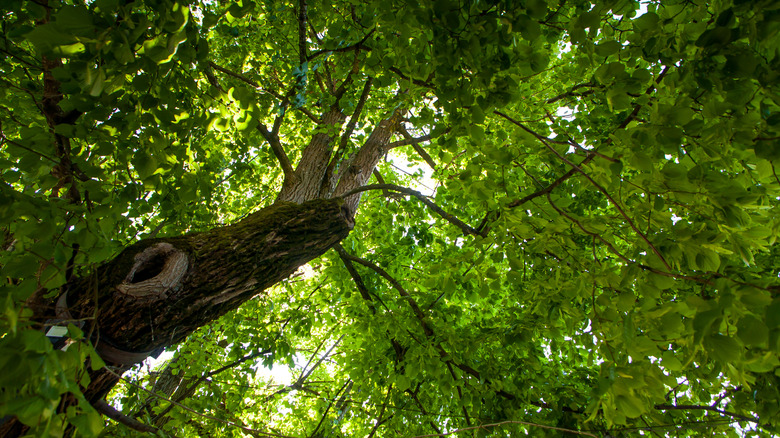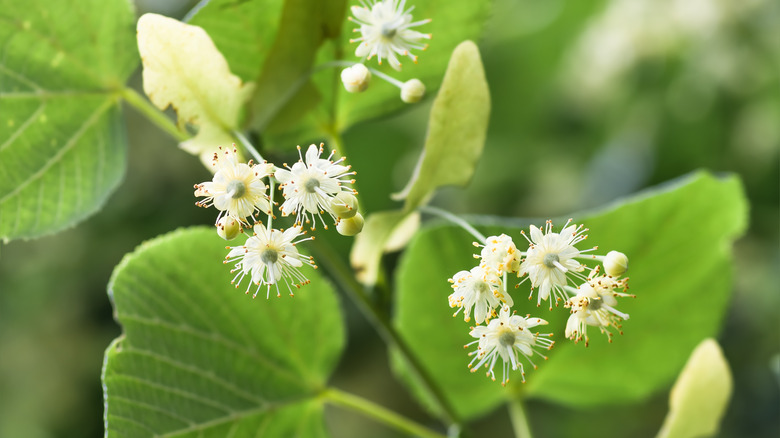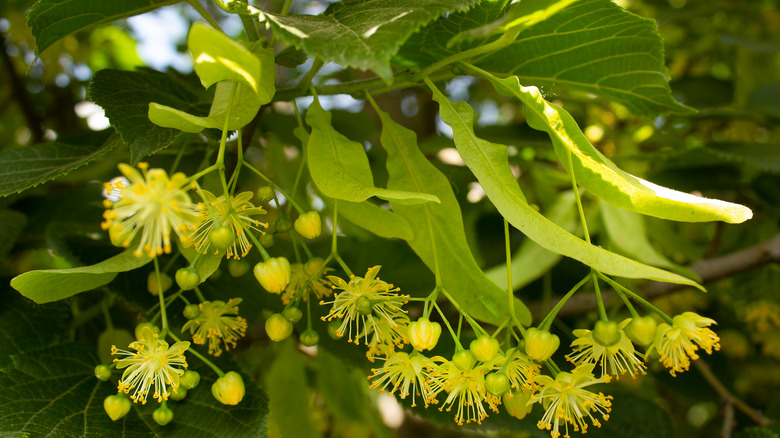This Gorgeous Shade Tree May Have Some Drawbacks, According To Our Horticulture Expert
The American basswood (Tilia americana) is a stunning native shade tree with immense ornamental value. It is also known as the American linden or the "bee tree" for how much honeybees and other pollinators frequent the flowers. In recent years, this magnificent tree has encountered a few pest issues. In minor cases, the tree recovers, and in more severe cases, the tree can be completely defoliated and skeletonized. This is primarily due to an influx of invasive insect pests. However, some fungal pests have caused issues as well. My name is Amira Gundel, and I'm bringing my years of experience in horticulture, landscaping, and native plant conservation to the table to help you make an informed decision on planting your next shade tree.
While some pest issues have become an issue for the American basswood, it really should not stop you from incorporating this lush, fragrant, and beautiful tree into your landscape. The pest issues are not considered too severe, and in most cases, the trees bounce back. The benefits of having basswood in your yard, from providing bountiful shade, fragrant flowers, valuable lumber, and medicinal and edible uses, far outweigh the drawbacks regarding pests or other issues. Aside from its unique value for humans, this tree plays a vital function in the ecosystem, and lots of wildlife depend on it to survive.
What is the American basswood tree?
The American basswood tree is a native North American tree that ranges across most of the northeast and into the Midwest. It can reach heights of 100 feet with a 40-foot spread, making it an excellent ornamental shade tree in the landscape. Its growth habit is another added benefit as it tends to grow straight up, taking a pyramid shape when it's young and a lush oval shape as it matures. It is not prone to codominance or developing multiple trunks like many other ornamental trees that can lead to a plethora of problems down the line. The leaves are heart-shaped, as with many other mallow or Malvaceae family species. The leaves can be 4 to 8 inches long, adding to the effect of an abnormally lush and full canopy. It's rare to find such a large, bountiful tree with accompanying large leaves.
In June, the American basswood produces fragrant, light yellow flower clusters that blanket the tree in a gorgeous display and intoxicating aroma. The flowers are known to be visited by rare native bees and other pollinators, and they are also a favorite flower among honeybees. Linden honey is a high-value gourmet honey that can be purchased from beekeepers. The wood is soft, making it ideal for carving and other applications. Historically, indigenous tribes used the inner bark or "bast" for rope, fishnets, and baskets, and it was once the preferred material for prosthetic limbs.
Potential drawbacks of planting the American basswood
As mentioned above, the benefits of this beautiful shade tree far outweigh the drawbacks. However, being aware of potential issues and making an informed decision is essential. One of the main pests of the American basswood tree is the invasive Japanese beetle, which has been known to completely defoliate a mature tree in a matter of a few weeks. Other known pests are aphids, the linden looper, European linden bark borer, linden mite, and basswood thrips. It's important to note that the most damaging pest issues are from invasive species; their native counterparts do not cause nearly as much damage. In addition to insect pests, basswood has been susceptible to fungal problems like anthracnose and verticillium wilt.
While it does have some pest issues, overall, it is not known to have any serious threats when it comes to insect or fungal pests. Many trees have the potential to have pest problems, and the American basswood is not more prone to having pest issues compared to other trees. In fact, according to the Xerces Society, basswood supports biological conservation control by attracting predatory insects that prey on common pests. In other words, these bugs banish pests from your garden. The American basswood is a gorgeous statement shade tree with spectacular leaves, lovely aromatic flowers, and immeasurable benefits for our native ecosystems and wildlife.


